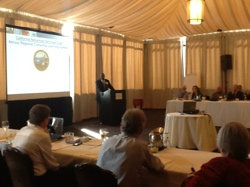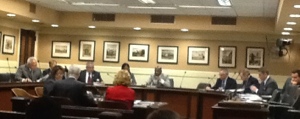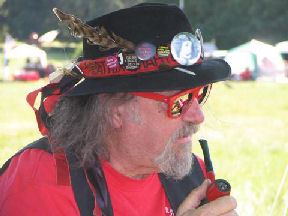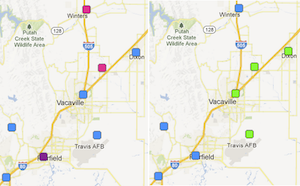Urban issues take the lead at Sacramento broadband meetings

Not this meeting. Ours took longer and no decision was made. But at least we were co-ed.
Digital literacy and broadband adoption – the wired kind anyway – were high on most priority lists in Sacramento this week. Broadband infrastructure, well, not so much. For four days, various (directly and indirectly) state-funded broadband groups met with agency and legislative staff, policy makers and telecoms companies. Much of the talk was about social service and educational programs, and how to fund them.… More








